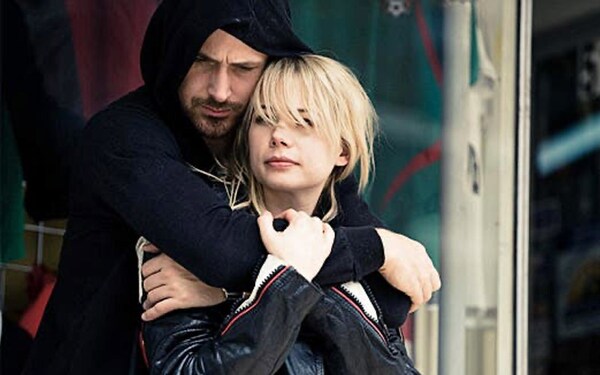Blue Valentine: When Love Fades Away

- Pooja Bhatia
Film Companion
Last Updated: 04.15 PM, Jun 04, 2021
“And they lived crappily ever after.”
Away from the world of fairy tale romances with their perfect happy endings, Derek Cianfrance’s Blue Valentine takes a detour into the chaotic, flawed and messy world of adult relationships. As the name of the title suggests, Blue Valentine is not a film about falling in love or basking in its glory; it is about battling the blues of love. Is love enough to be happy? Is love the glue that holds a marriage together? If so, what happens when it fades away?
The story revolves around a working-class couple – Dean, a house painter and Cindy, a nurse – struggling to keep their love marriage of five years intact. The narration of the film moves back and forth in time giving us glimpses of their sweet past. Dean, a hopeless romantic, falls in love with Cindy the first time he runs into her at a hospital. Cindy likes Dean but she is caught up with her personal and family issues. She feels overwhelmed by her unexpected pregnancy with her college boyfriend Bobby, the constant bickering of her parents and the illness of her grandma. Dean does not get put off with any of this and continues to pursue her. They eventually get married and Dean agrees to be the father of her child.
With time, as their financial status dwindles further, cracks begin to surface in their relationship. Cindy begins to feel frustrated and bitter and can no longer keep up with the pretence. She is out of love with Dean, a man she married out of circumstance rather than choice. In a poignant scene towards the end of the film, she stoically stares at him and tells him, “I am so out of love for you. I have nothing here left for you anymore. Nothing at all.”
Cindy had a promising future ahead of her. She wanted to study medicine, a dream she sacrificed at the altar of marriage. Dean’s love does not complete or fill her; it only depresses and exhausts her. She finds his unkempt clothes, protruding beer belly, balding head, laidback personality and lack of ambition unattractive. Even his goofiness and humour (a trait she found charming when they were courting) begins to irk her. She contemplates about what her life could have been had she married her college sweetheart Bobby, or any other guy for that matter.
The happy-go-lucky Dean, whose entire life revolves around his wife and kid, does not take kindly to criticism when Cindy pushes him to be a better version of himself. The clash in their personalities is evident in one of the most disturbing motel room scenes where a drunk Dean tries to forcefully have sex with a scornful Cindy who cannot even bear to stand him. She keeps rejecting his advances and tries to knock some sense into him. He lashes out at her yelling, “Why should I make money out of my potential? Potential for what? I am happy being in a job where I can enjoy a few bottles of beer in the morning and spend time with my wife and kid in the evening.” Misjudging her mood, he tells her that he wants to have another baby with her. This obviously triggers Cindy who abandons a drunk Dean at the motel and heads to work. The irony is that Dean chooses the “Future Room” at the motel to spend the night with Cindy whereas the couple are heading towards no future together. The friction and decay in Cindy and Dean’s toxic marriage is gradually revealed with the couple reaching an impasse towards the end.
Like an instructive manual, Blue Valentine lays bare the emotional baggage that we as adults enter any relationship with. It highlights the importance of parenting and how childhood experiences can affect one’s relationship with their partners. Dean, who comes from a broken home, wants to save is marriage at all costs. He does not want his daughter to live through a troubled childhood like his. In a heart-breaking scene, an emotionally vulnerable Dean breaks down and begs Cindy not to leave him: “I don’t know what to do. I don’t know what else to do. Tell me what to do. How else I should be? I’ll do it. You made a vow to stay together for better or for worse. This is my worst. I’m gonna get better. You’ve gotta give me a chance.”
Blue Valentine does a ‘Marriage Story’ way before its time. It beautifully depicts the transition from a romantic and fun-filled courtship to a marriage that demands stricter commitment and compromise. Offering a crash course (more like a reality check) on adult relationships, it shows us how two people in love can still be incompatible and at odds with each other, enabling their destruction. The Mills Brothers song that Dean sings on the ukulele fits in aptly with the film’s theme:
“You always hurt the one you love
The one you shouldn’t hurt at all
You always break the kindest heart
With a hasty word you can’t recall
So if I broke your heart last night
It’s because I love you most of all.”
The post Blue Valentine: When Love Fades Away appeared first on Film Companion.

 Premium
Premium